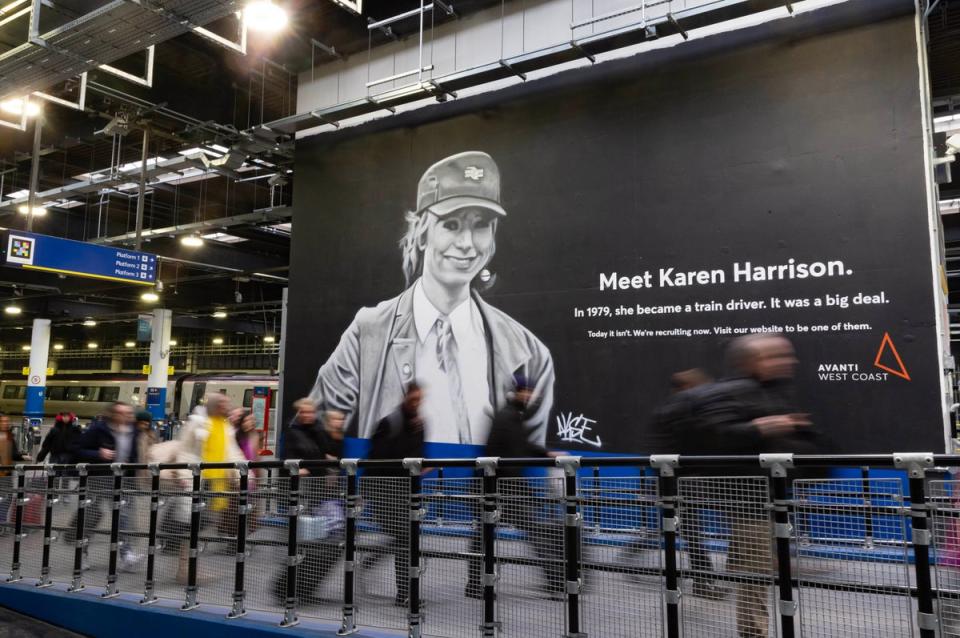Euston Station mural celebrates pioneering female train driver in recruitment bid

A giant mural celebrating one of the first women to drive a train has been erected at Euston station in a bid to recruit more female drivers.
Karen Harrison was the first woman to be accepted to train as a driver – having applied as “K Harrison” to British Rail in 1977 and securing an interview from bosses who believed they were seeing a young man.
Avanti West Coast, which runs high-speed trains between London, Glasgow and Edinburgh, commissioned street artist Akse, famed for his portraits of Marcus Rashford, George Floyd and Captain Sir Tom Moore, to create the work.
The poster reads: “Meet Karen Harrison. In 1979 she became a train driver. It was a big deal. Today it isn’t. We’re recruiting now. Visit our website to be one of them.”
Avanti wants half of all its recruits to be women by 2030. It hopes an industry-first social media “chatbot” will encourage applicants by streamlining the application process. About one in seven of its drivers are women.
Harrison, who was born in 1960, died in 2011. Her family gave their blessing to the campaign, which challenges the stereotype that train driving is a job for men.
In 1997, Harrison told a BBC documentary about the challenges she faced: “It was open warfare, people wouldn’t work with me, people put notes up about me, my locker was defaced. Graphic pornography went up in the mess rooms.

“I’ve never wanted to be pushed out. I knew if I’d left the railway, I’d have let these people win and what was happening was wrong and it wasn’t fair.”
She later retired and studied law at Oxford university.
Marie Harrison said: “My sister Karen was a trailblazer in the rail industry, in the trade union movement and beyond. She applied her determination and formidable intelligence to achieve her goals and her family is enormously proud that this legacy continues to have an impact today.
Akse’s mural captures that independence of spirit and fierce determination not only to secure her own place in the rail industry, but to ensure that other women could follow her path. We hope that she continues to inspire women to consider train driving, the job that she loved and fought for so passionately.”
Akse said: “I’m incredibly proud to be involved in highlighting Karen’s achievements on the railway. This mural will be seen by thousands of passengers each day and I hope her image continues to inspire, encourage, and educate the next generation.”

 Yahoo News
Yahoo News 
